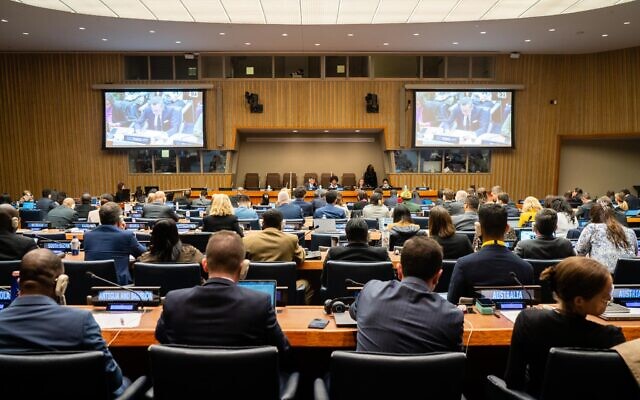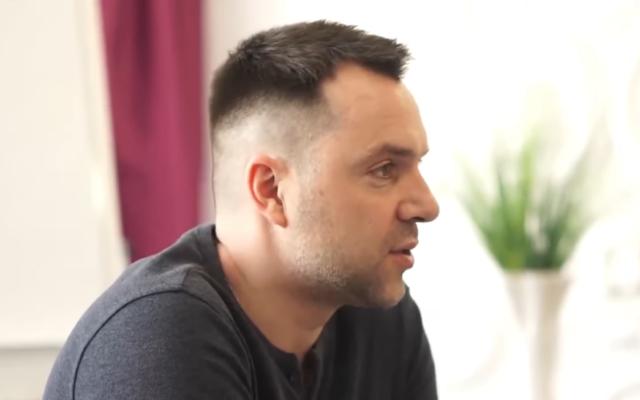The UN General Assembly Fourth Committee voted in favor of the measure by a margin of 98 in favor, 17 opposed and 52 abstentions.

The resolution, titled “Israeli practices and settlement activities affecting the rights of the Palestinian people and other Arabs of the occupied territories,” was one of several focused on the conflict during the session.
It requests that The Hague-based ICJ “render urgently an advisory opinion” on Israel’s “prolonged occupation, settlement and annexation of Palestinian territory.”
Both Ukraine and Russia voted in favor.
Other countries that voted in favor include Egypt and Jordan, both of which have signed peace treaties with Israel, as well as Bahrain and the United Arab Emirates, which recently signed normalization agreements with the Jewish state as part of the Abraham Accords.
Later on Friday, Israel’s Ambassador to Ukraine Michael Brodsky lambasted Kyiv for its support of the resolution.
Voicing his criticism on Twitter, the Israeli envoy said Ukraine’s “support of the UN resolution… denying Jewish ties to Temple Mount and calling for ICJ advisory opinion is extremely disappointing.”
“Supporting anti-Israeli initiatives in the UN doesn’t help to build trust” between the countries, said the ambassador.

Ukraine has repeatedly requested military aid and equipment from Israel to fight off Russia’s assault on the country since late February. While providing humanitarian assistance to Ukraine, Israel has maintained a strict policy of not providing military aid, including systems that could help it intercept Russian missile and drone attacks.
The reasoning behind the decision appears to be Israel’s strategic need to maintain freedom of operations in Syria, as part of its efforts to prevent Iranian entrenchment on its doorstep. To that end, Israel cooperates with the Russian military, which largely controls Syria’s airspace. Israeli officials have also expressed fear that advanced military technology could fall into enemy hands and cited production and supply limitations.
Zelensky said earlier this month that, with Iran’s involvement in the war, as a key supplier of deadly drones to Russia, he hoped Israel would change its stance.
However, Aristovich suggested in an interview on Saturday that Iran might be reconsidering its aid to Moscow’s war effort after having received “an offer it can’t resist” from the West, without elaborating further.
